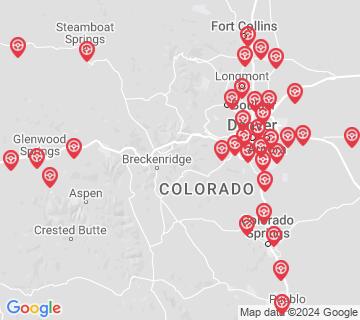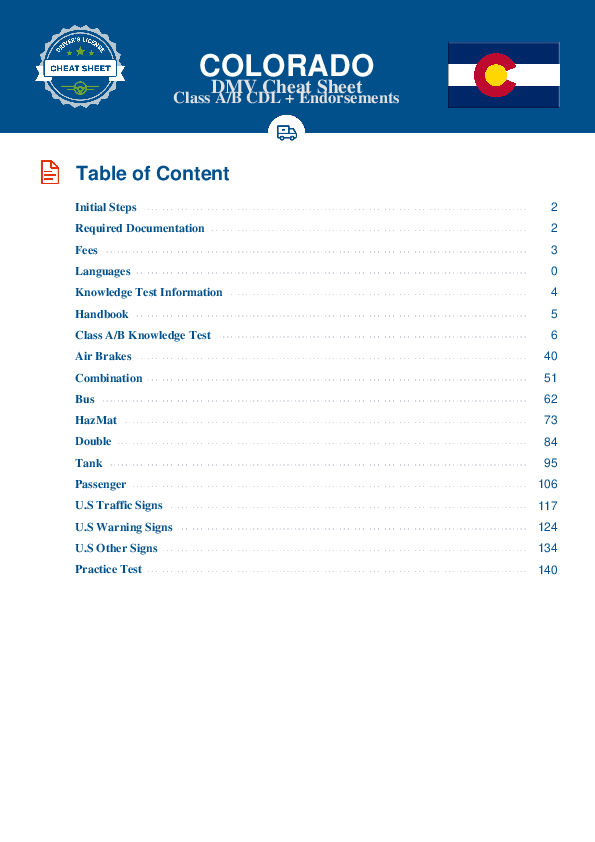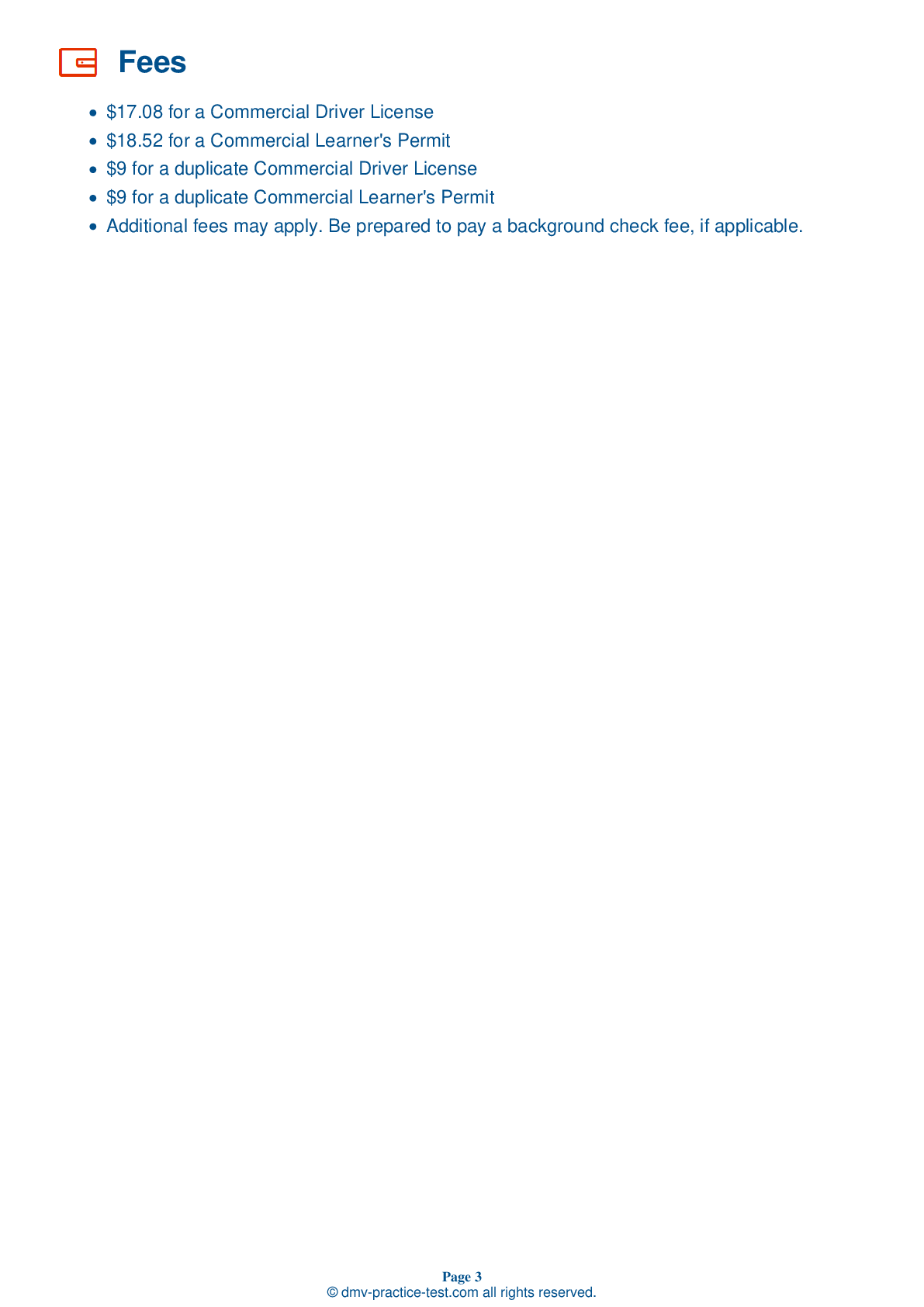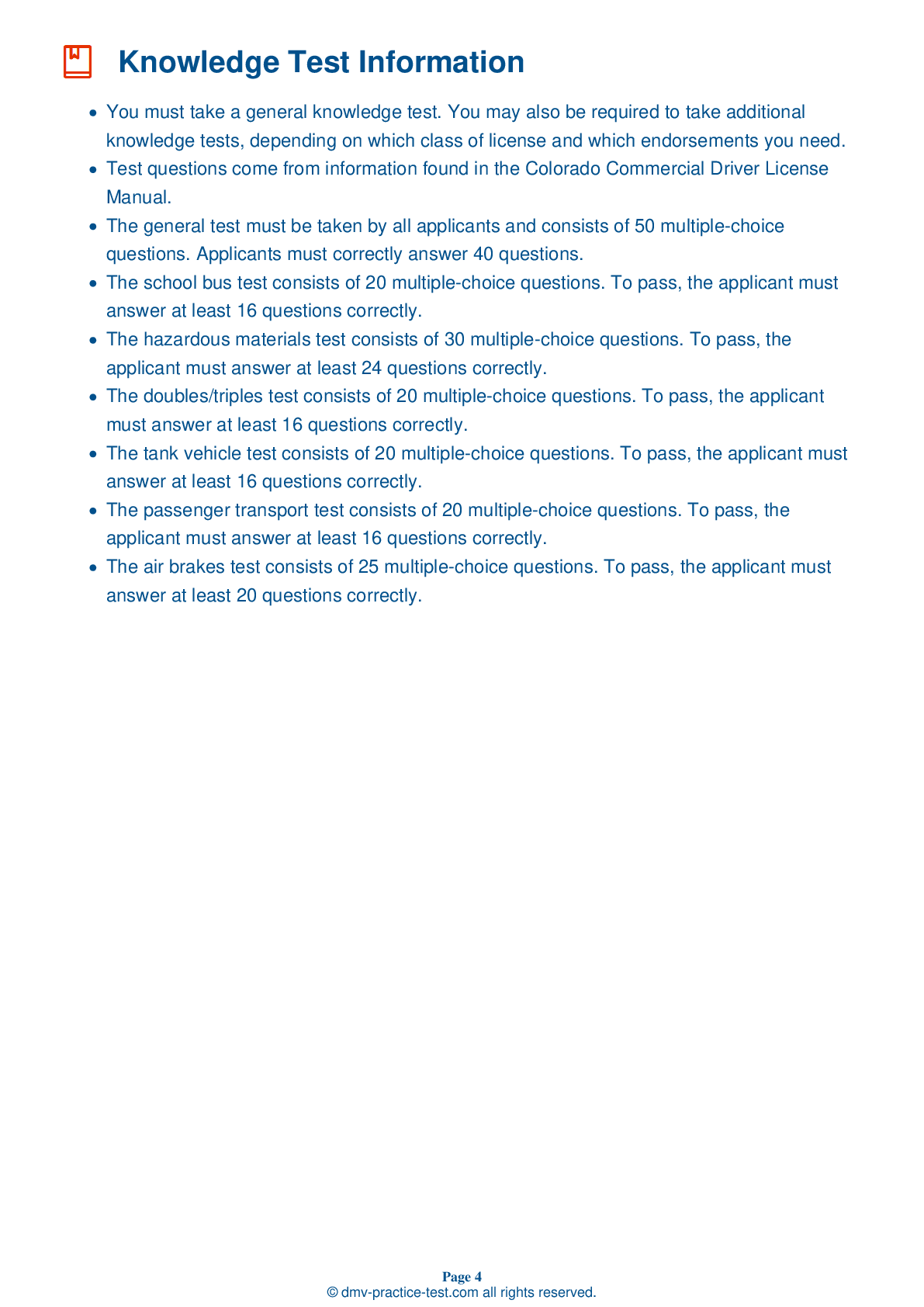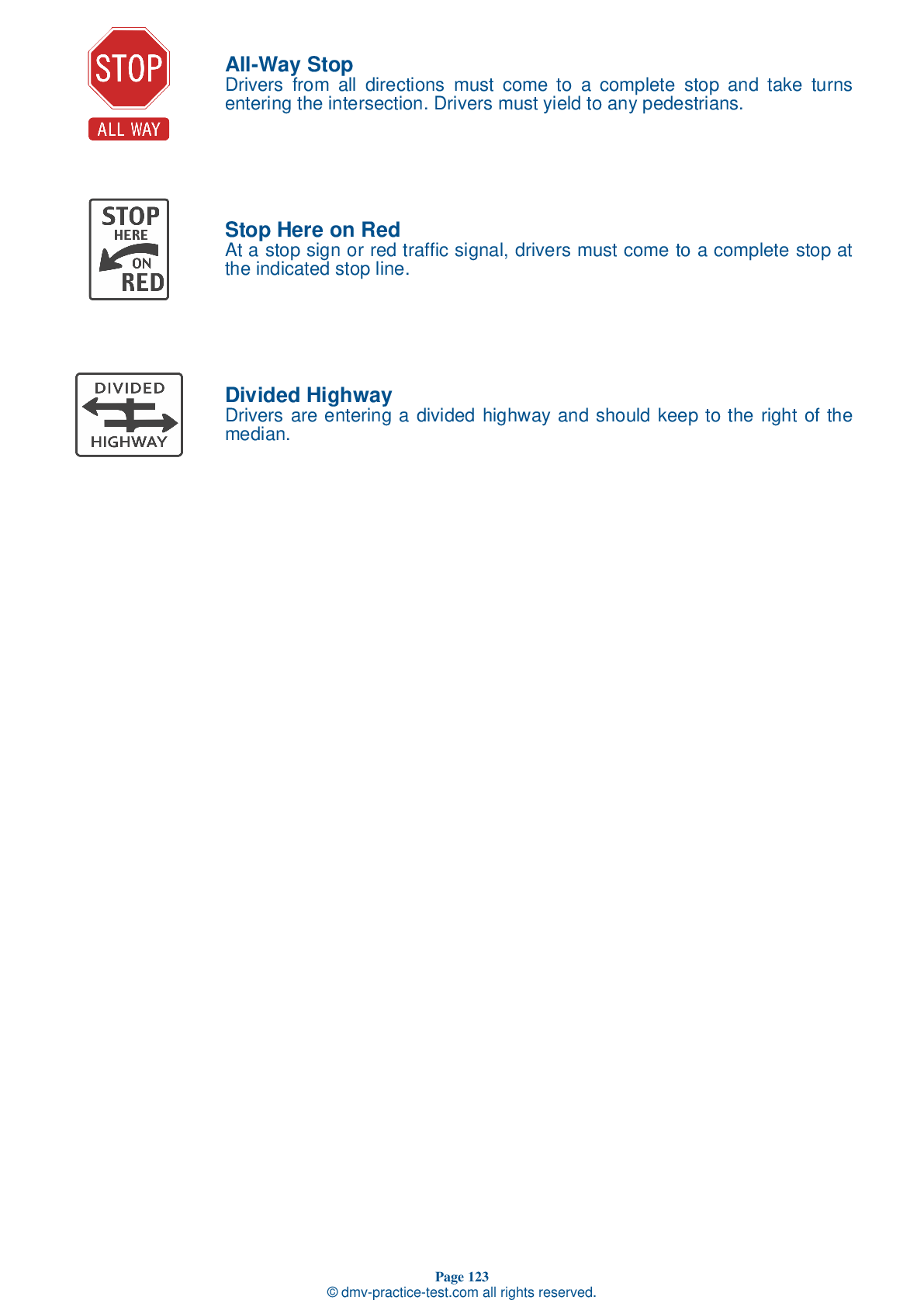Bus #1
Bus Driver Testing | Colorado 2025 #1
Train for FREE online with our CO bus CDL test. The official exam test consists of several obligatory parts, with all of them checking your knowledge of different blocks of road rules. If you need to obtain a license in Colorado in 2025, learn how to become a bus driver and then practice as much as possible. Free sample tests published on our website will help you check and improve your knowledge and boost your grades. Please bear in mind that DMV requirements for a bus driver may vary from state to state.
20
16
20
1 . During the vehicle inspection test, you will be required to do all of the following, except:
Crawl under the vehicle.
As a part of earning your CDL, you will have to pass an inspection test and demonstrate that your vehicle is safe for operation. During the vehicle inspection test, you will have to walk around the vehicle and point to or touch each item and explain to the examiner what you are checking and why. You will not have to crawl under the hood or under the vehicle.
2 . When asked to complete an offset back/left parking maneuver, you should:
Pull forward to the left, then back in a straight line.
If you are asked to complete an offset back/left parking maneuver, you should first pull straight forward, then back up to the left. Your vehicle must be parked completely within the boundaries of the parking space.
3 . During the on-road driving test, you must do all of the following, except:
Obey all traffic signs and signals, but only if other traffic is present.
You must drive in a safe and responsible manner during the on-road driving test. This includes wearing your safety belt; obeying all traffic signs, signals, and laws; and completing the test without an accident or moving violation.
4 . If exiting a bus during the basic vehicle control skills test, you must:
Rush down the stairs.
When exiting your vehicle during the basic vehicle control skills test, you must face the vehicle and maintain three points of contact at all times. If your testing vehicle is a bus, you must maintain contact with the handrail. Exiting the vehicle incorrectly may result in automatic failure of the basic control skills test.
5 . The drive shaft should:
Not be bent.
During the vehicle inspection test, you should check that the drive shaft is not bent or cracked.
6 . When you are approaching a bus stop, the students on your bus should:
Ask the driver questions.
Students on a school bus should remain seated until they are told otherwise. It is unsafe for students to walk around the bus while it is moving.
7 . Which of the following is likely to result in the most student deaths per year?
Accidents in which drivers ignore traffic signals or signs
More students are killed each year while getting on or off school buses than while riding as passengers on board school buses.
Search the best driving school in your neighbourhood
2025 Colorado | Frequently Asked Questions
To secure a CDL Doubles/Triples endorsement in Colorado, you must already hold a valid CDL. You'll need to pass a knowledge test on handling large trucks with multiple trailers. After passing, the endorsement will be added to your CDL. Remember, this endorsement does not cover the operation of motorcycles or school buses.
To obtain a Colorado CDL Doubles/Triples license, you should first have a valid Colorado CDL. Then, you'll need to pass the Doubles and Triples endorsement test. This test covers topics like coupling and uncoupling, inspecting doubles and triples, and handling. After passing the test, the endorsement will be added to your CDL.
While Colorado doesn't specifically require specialized training for a CDL Doubles/Triples endorsement, it's highly recommended. Training can ensure you're prepared for the knowledge test and safe operation of these vehicles. Experience driving a single trailer truck may also be beneficial, but isn't required. The key requirement is passing the endorsement knowledge test.
Yes, to obtain a CDL Doubles/Triples endorsement in Colorado, you must pass a written knowledge test. This exam focuses on the safe operation and handling of large trucks with multiple trailers. It's important to study thoroughly, using resources like the Colorado CDL Handbook, to ensure success on this test.
For the CDL Doubles/Triples endorsement in Colorado, you're not required to perform a skills or road test. The endorsement solely requires passing a written knowledge test. This test covers topics like coupling and uncoupling, inspecting doubles and triples, and managing the vehicles on the road. Practical skills are important for safe driving but aren't formally tested for this endorsement.
No, it is not permissible to operate double or triple trailers in Colorado without a valid CDL Doubles/Triples endorsement. This endorsement is necessary to ensure that drivers have the specialized knowledge and skills required to safely operate such vehicles. Driving without the proper endorsement can result in legal penalties.
In Colorado, you can add the CDL Doubles/Triples endorsement to your existing commercial driver's license. You don't need to initiate a new application for a separate license. However, you must pass the written knowledge test specific to doubles/triples operation. After passing, the endorsement is added to your current CDL.
Yes, even with a CDL Doubles/Triples endorsement, Colorado drivers must adhere to specific rules. These include a maximum trailer length of 28.5 feet for each unit in a set of doubles, and the total weight of all units combined cannot exceed 80,000 lbs. Also, drivers must follow all federal and state transportation laws, including hours of service regulations.
In Colorado, the maximum legal weight for a vehicle, including double or triple trailers, is 80,000 pounds. The maximum length for a single trailer is 57 feet 4 inches. For double/triple trailers, the combined length should not exceed 100 feet. However, these restrictions may vary depending on road and bridge limits.
Yes, safety is paramount when operating double/triple trailers. Drivers must follow federal and state laws, including speed limits and hours of service regulations. They should also be well-versed in coupling and uncoupling procedures, inspecting the coupling system regularly. Additionally, they must understand the high rollover risk associated with these vehicles and ensure proper cargo distribution to prevent accidents.
